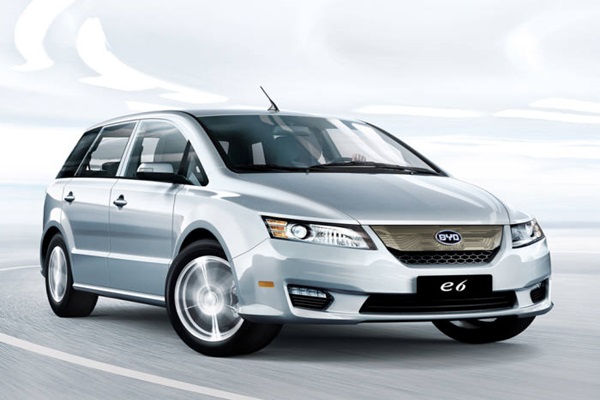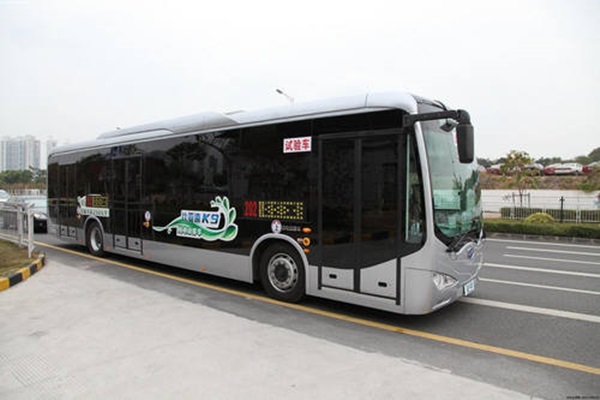Friction between South Korea and China to Take Place
South Korea and China are having a slugfest with electric vehicles on the line and also having war of nerves by setting up regulations and systems so that their businesses cannot enter opposite country. China has set up regulations so that Chinese businesses cannot use South Korean batteries while South Korea is not providing subsidies for Chinese electric vehicles because time required to charge Chinese electric vehicles’ batteries is longer than the time that is regulated.
▲Will BYD Receive Approval in South Korea?
BYD, which is the top electric vehicle business in China, is planning to release its electric vehicles in South Korea.
According to related industries and authorities, BYD is going to introduce two major types of electric sedan and electric bus to South Korea’s central government and local government’s civilian supply business in first half of this year.

BYD made an announcement on the 11th that it will release its major battery electric vehicle model called ‘e6 400’ and an electric bus called ‘K9’ in South Korea in first half at the earliest. It recently ended compatibility test between South Korean charging infrastructures with a South Korean charging infrastructure business and is currently going through a verification process with Ministry of Environment’s Korea Environment Corporation and Korea Transportation Safety Authority’s Korea Automobile Testing & Research Institute (KATRI).
Process of certifying ’e6 400’ is done by KCC’s KCC Auto Group that has made partnership with BYD about South Korean markets in end of last year. Process for K9 will be done directly by BYD Headquarters. If there are not any problems during the whole process, BYD is planning to participate in Ministry of Environment’s electric vehicle civilian supply business in first half at the earliest.
However BYD is already having difficulties during certification process. According to Ministry of Environment’s standards, only electric vehicles that can be fully charged in 10 hours based on idling charging infrastructure (7 kWh) can receive subsidies. Electric vehicles that have been released in South Korea until now have battery capacity between 16 and 28 kWh and require 5 to 7 hours to be fully charged.
BYD’s e6 400 has 80 kWh battery and requires more than 13 hours to be fully charged (based on test done by BYD). Not only e6 400, but Tesla’s model S and model X, which are to be released in South Korea soon, also require more than 10 hours and exempted from receiving subsidies because of it. Fact that BYD and Tesla have increased batteries’ capacities to resolve inconvenience with driving distances rather became an obstacle to enter South Korean markets.

From an aspect of follow-up managements such as AS (after service) and others, fact that it is an individual import and not an official import that is led by BYD Headquarters is also another reason why BYD’s electric vehicles will not receive subsidies. It is inevitable to base contracts on higher responsibilities such as AS from BYD Headquarters and others since BYD and KCC Auto Group have distributors contract. BYD’s electric vehicles are not coincided with South Korean Government’s evaluation standards on assistance for electric vehicles. If these regulations are not eased, it will be difficult for BYD’s electric vehicles to be released in South Korea.
▲China Disapproves South Korean Batteries on Its Electric Buses
Recently Chinese Government announced that it will not supply any subsidies for electric buses that have lithium-ion batteries based on NCM (Nickel Cadmium Manganese) material, which is a major product of LG Chemicals and Samsung SDI. This is a bolt from the blue for South Korean batteries that have established or expanded lithium battery production lines according to Chinese demands.
Although Chinese Government is saying that it has set such regulations for car safeties from explosions and others, it can be seen that it has set such regulations to protect its LFP (Lithium Ferric Phosphate) battery industry.
While South Korean battery businesses are doing their bests not to stimulate Chinese Government, they are very dissatisfied with Chinese Government. “It is true that Chinese electric vehicle manufacturers prefer NCM.” said a representative for a South Korean battery business. “We will know in the future whether Chinese Government is totally disapproving NCM batteries or reinforcing standards for its evaluations on NCM batteries.”
“We are currently considering about changing our standards for electric vehicles that have long driving distance.” said a representative for Ministry of Environment. “Our standards on time required to finish charging have nothing to with China’s sanctions on South Korean batteries.”
Both of electric vehicle industries from South Korea and China believe that collisions between these two governments on variety of vehicles and competition in technologies are not right.
“Right now is the time to be more open to opposite country’s industry and have more multilateral competitions so that technologies related to both countries’ electric vehicles can be developed and that they can be competitive in related markets.” said a representative of an industry. “If they are just so concerned about protecting their own industries, they can miss out on securing markets or cooperation in technologies that are even bigger.”
Staff Reporter Park, Taejoon / gaius@etnews.com